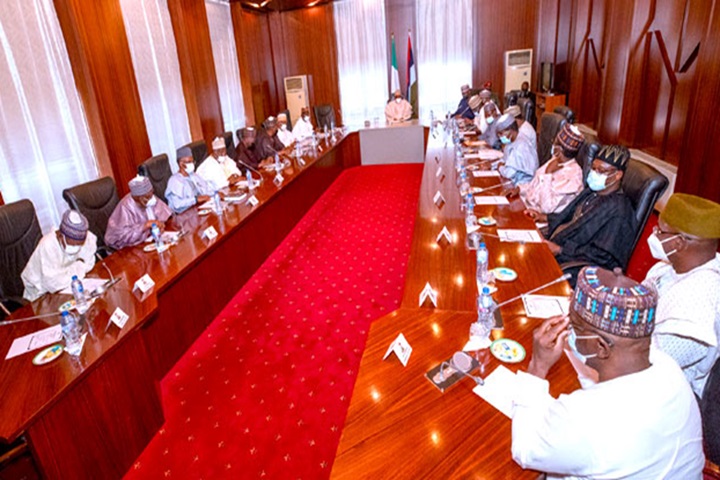In a landmark moment of bipartisan, national, and sub-national cooperation, the Athena Centre for Policy and Leadership, in collaboration with the Federal Ministry of Health, has brought critical focus to the escalating issue of malnutrition in Northern Nigeria.
At a policy dialogue organized by the Athena Centre, held at the Transcorp Hilton Abuja on Thursday, June 27, 2024, the governors of Katsina, Kebbi, Niger, and Zamfara states pledged to partner with the Federal Government and development partners to combat the rising scourge of malnutrition.
In his opening remarks, Osita Chidoka, the founder and Chancellor of the Athena Centre, called on stakeholders to unite to save the lives of young Nigerians facing acute malnutrition.

He emphasized the urgent need for collaborative efforts to address this pressing issue and called for a national awakening to the malnutrition problem, stressing the importance of coordinated efforts between federal and state governments, as well as international partners.
“This event is about bringing national consciousness to the issue and finding tangible solutions to make sure our people do not suffer from acute hunger,” he said.
The Coordinating Minister of Health and Social Welfare, Prof. Muhammad Ali Pate, announced various interventions by the Federal Government, including establishing several treatment sites equipped with locally sourced, ready-to-use therapeutic foods for acute malnutrition cases in the northeast.
He highlighted the gaps in the northwest and discussed mobilizing support to fill these gaps, including sourcing millions of doses of micronutrient supplements for distribution across the states.
The federal government has approved $11 billion to be disbursed among the states of the federation.
“Our children are among the most important assets that this country has,” Pate stated, highlighting the urgency of addressing the malnutrition crisis.
He also noted that a significant portion of the approved funds would be directed towards enhancing 1,200 primary health care centers nationwide.
The Minister of Agriculture, Senator Abubakar Kyari, represented by the Director of Nutrition and Food Safety in the Ministry, Mrs. Fatima Sugra, presented key measures and ongoing efforts.
She outlined plans for long-term food production and fortification, emphasizing sustainable agricultural practices.
Niger State Governor, Mohammed Umaru Bago, highlighted the importance of agricultural development as a strategy to combat malnutrition and hunger in the region.
He emphasized the need for improved agricultural practices to ensure the production of high-quality, nutritious food.
“My administration has focused on diversifying Niger State’s economy through enhanced agricultural production.
The state’s effort to mechanize farming is more efficient and capable of meeting local and broader demands,” he said.
Governor Dauda Lawal of Zamfara called for a renewed focus on the North West and North Central regions, urging development partners to avoid regional biases and maintain a sustained focus on the North East.
Governor Umar Dikko Radda of Katsina emphasized the need for immediate action, pledging counterpart funding for interventions in his state.
Kebbi State Governor Nasir Idris, represented by his deputy, Umar Abubakar Tafida, reiterated the state’s immediate readiness to partner with stakeholders to assist malnourished citizens.
Dr. Simba Tirima, Country Director of Médecins Sans Frontières (MSF), provided alarming data, noting that approximately 2.6 million children in Nigeria suffer from severe acute malnutrition, with another 9 million moderately malnourished. Ritgak Tilley-Gyado, the World Bank Lead for Accelerating Nutrition Results in Nigeria, proposed actions to improve governance and coordination, create social protection programs, and deploy cross-sectoral nutrition innovations for health and healthy diets.
Chidoka expressed gratitude to all participants and announced that the next step would be developing a working paper to aid in creating a coherent national policy and identifying sustainable funding mechanisms.
“This working paper will address the immediate medical issues of malnutrition and the long-term need for national food security through increased food production and fortification.
The conclusions of this dialogue will be forwarded to the Vice President, Sen. Kashim Shettima, as the Chairman of the National Council on Nutrition,” he said.
Support InfoStride News' Credible Journalism: Only credible journalism can guarantee a fair, accountable and transparent society, including democracy and government. It involves a lot of efforts and money. We need your support. Click here to Donate
